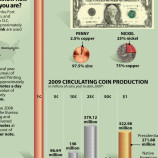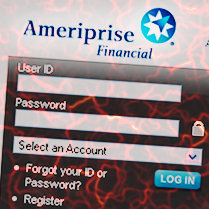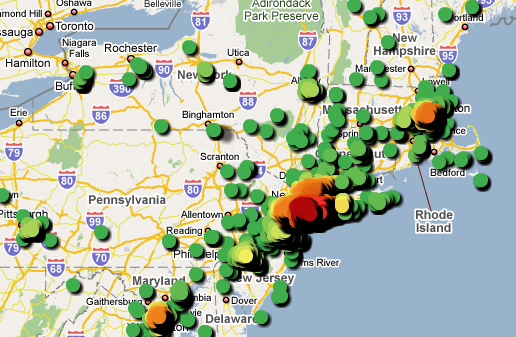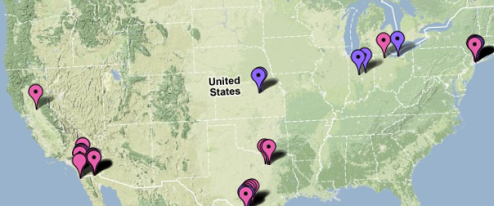For three years now, reports The Tennessean, the owner of a solar panel company in Indiana says “confidential medical faxes” have been sent to him by doctors throughout Tennessee. His fax number is apparently very similar to the one for the Tennessee Department of Human Services, but although he’s contacted the errant doctors’ offices, as well as reported it to the DHS and to the state’s governor’s office, they keep coming.
data

Grab Your Old Statements, We're Going To The Shred-A-Thon!
Tucson, Arizona is hosting a community shred-a-thon in October, where private citizens can show up with boxes of sensitive data and have it shredded for free. Back in July, the Wall Street Journal looked at the growing trend of community shredding events as an example of how regular people are taking action to prevent identity theft.

What Bills Are In Circulation The Most?
Visual Economics has a fun chart that shows how many of each denomination of U.S. currency is in circulation, as well as their average lifespans. For some reason, the $5 bill has the shortest lifespan. Also, seriously, we need to stop producing pennies NOW.

Is Verizon Randomly Charging You $1.99 Per Line For "Data Usage"?
On August 14, the Cleveland Plain Dealer printed a column by a business writer who described her 6-month-long ordeal with Verizon concerning a mysterious $1.99 charge for “data usage.” The paper says that over 400 Plain Dealer readers responded with complaints similar to the one in the column. Now the paper says they have a promise from Verizon to refund these mysterious and erroneous charges.

Ameriprise Website Riddled With Security Vulnerabilities For At Least Five Months
[Note: The original headline for this post mistakenly identified Ameritrade as the subject of the post. It is actually Ameriprise Financial. I deeply regret the error.] Since March of this year, security expert Russ McRee of HolisticInfoSec.org has sent 6 messages to Ameriprise Financial warning them of easily exploitable security holes on their website. They ignored every request, while at the same time reassuring customers that “No one without the proper web browser configuration can view or modify information contained on our systems.”

Google Invites Privacy-Concerned Users To Move To Remote Village
The Onion reports that Google’s new privacy policy requires users who wish to opt out to relocate to a remote ghetto and abandon all contact with the outside world. (Photo: kalle svensson)

Hacked Company: Notifying Customers Of Breach Is A "Burden"
Network Solutions, an e-commerce company, just experienced a data breach that resulted in them compromising 573,000 credit and debit card accounts. The company has begun to notify merchants of the breach so they can tell their customers, but gosh, it’s just so hard.

Marketers Announce They Will Bring More Transparency To Personal Data Collection By 2010
Several major advertising trade groups announced yesterday that starting in 2010, they will implement a new set of self-imposed guidelines on how they collect and use your personal info, in an attempt to prevent the government from handing down federal regulations.

American Express Keeps Emailing Sensitive Customer Info To A Random Stranger
We’re starting to think Amex doesn’t take this whole “data security” thing very seriously. First they confused a customer, and us, a few months ago with their random confirmation phone call, where they demanded a customer turn over bank account information over the phone without giving him a way to verify they were really Amex. Now a reader says the company has “for years” been sending him someone else’s account info via email, including the customer’s name and the last 5 digits of his account number. J.R. writes, “Seriously, I’ve seen better security on a video game forum.”

Sears Settles With FTC Over Spyware Charge
In 2007 and 2008, Sears invited select customers to join the exclusive “My SHC Community,” which involved installing an app that would monitor online browsing in exchange for $10. The app was called spyware by researchers and the FTC, because the data it collected on customers included “details from their online shopping, bank statements, drug-prescription records, video rentals, library-borrowing histories, even the names and addresses of their e-mail correspondents,” as well as “data about the users’ computers, printers, and other devices.”

Erroneous Public Records Data, Or: Who The Heck Is This Hipolito Guy?
Kathy has an unusual problem. She thinks that there might be a problem with some of her public records and/or her credit report, but she isn’t sure how to find out how it got there, let alone remove it. See, there’s a man named Hipolito, with the same relatively common last name as Kathy, who keeps popping up in public records questions used to verify her identity. She has no idea who this man is, and neither does anyone in her family.

Madoff Map Shows Geographic Distribution Of Fraud Victims
Data is fun. Check out this map with data about the locations of Bernie Madoff‘s victims, color-coded according to the proximity of victims to each other, and in 3-D. Coooool. (Unless you’re one of the victims represented by those shiny, colorful dots, that is.)

Credit Card Processors Launch A New Strategy To Defeat Theft
This fall, credit card processors will being rolling out a new approach to preventing data theft, based on the assumption that it’s impossible to thwart every attack. Instead of keeping 100% of criminals out, they’ll segment and encrypt the data into such small chunks that it will no longer be a cost-effective crime.

Your Credit Card Company Is Building A Psychological Profile Of You
The next time you apply for a credit card, your credit report and income will be only a part of the criteria used to determine your creditworthiness. For that matter, as long as you have the card, what you use it for will be noted and added to a growing set of data that makes up your psychological profile, which will then be referred to every time the bank deals with your or reevaluates your risk as a customer.

Monitor Swine Flu With Zero Media Hype
Trancy.net is a news aggregator that keeps track of the swine flu but removes all the media hype, leaving just the data. The best-part are the auto-updating graphs fed with WHO (World Health Organization) data showing confirmed cases, confirmed deaths, and number of countries reporting confirmed cases.

Track The H1N1 Swine Flu Across The Globe
Everyone’s still unsure whether the H1N1 Swine Flu is a mild outbreak or something worse, but in the meantime you can amuse yourself with this grim Google Map of suspected and actual cases around the globe. It will give you something to do until the time comes when you have to decide between joining Randall Flagg or Mother Abagail.

T-Mobile Keeps Charging For Canceled Service, Refuses To Issue Full Refund
Taylor just noticed that T-Mobile has been billing him $19.99 for a data package he asked them to cancel seven months ago. Yes, Taylor should’ve caught the mistake sooner, but now that he’s found it, he wants T-Mobile to refund the $140 in unauthorized charges. T-Mobile, citing policy, is only willing to credit him $60.



